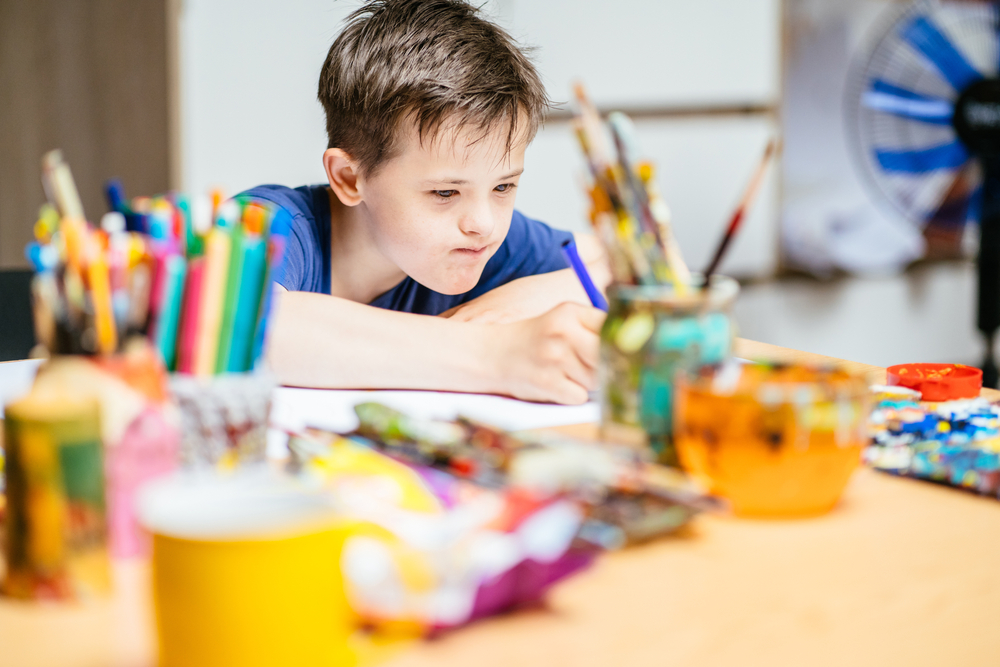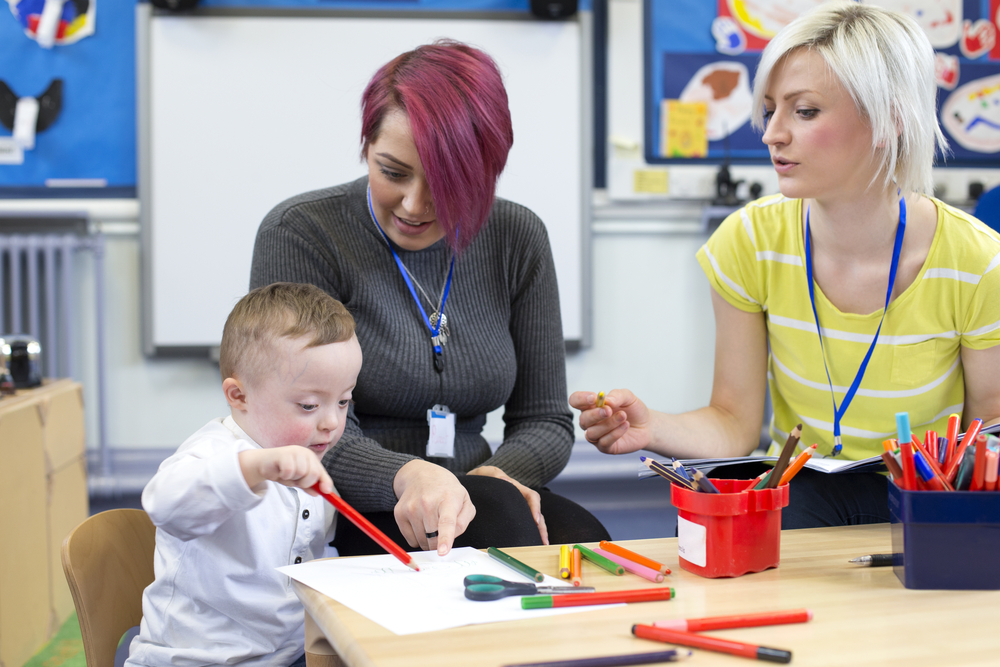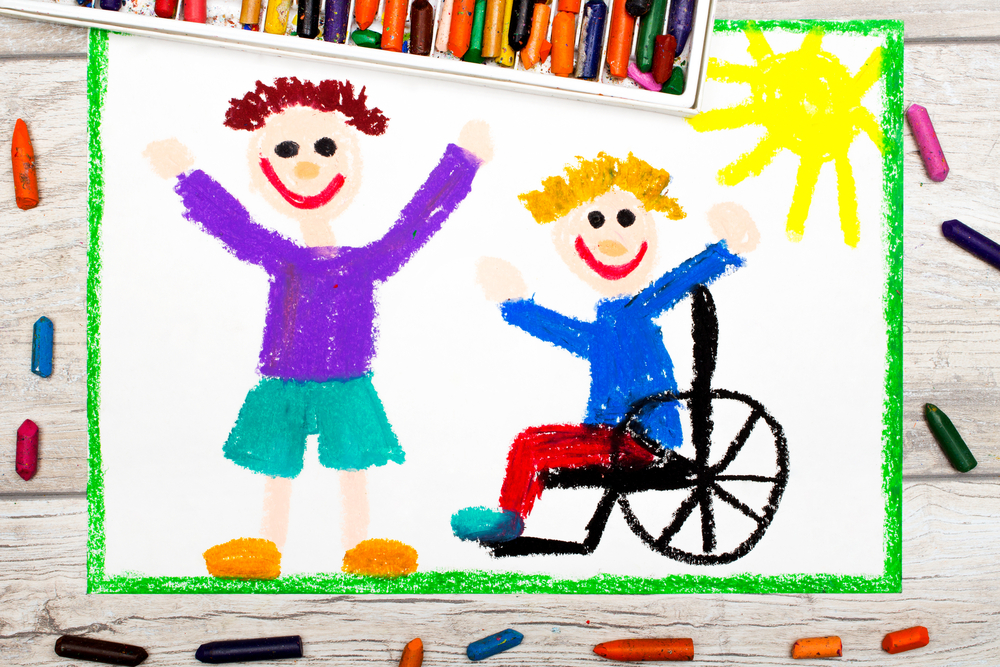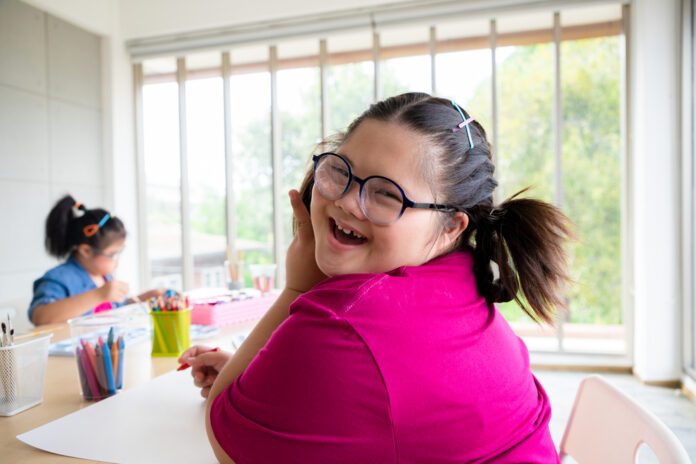Crayola produces nearly three billion crayons each year — an average of twelve million daily. Most parents won’t be shocked by that large number. That’s because families with children likely have multiple boxes of crayons lying around the house, including tons of broken crayons and/or favorite colors used way down to the nub.
August is National Crayon Collection Month. And aside from simply ridding your kiddos’ supply stash of broken crayons, this annual observance presents an opportunity to brighten the day of those within our disability community and beyond, including special education teachers, students with disabilities and even hospitalized children.
Why Donate Used Crayons for Recycling
Red, yellow, blue… regardless of which color you trash, throwing broken crayons away is anything but green! You see, 60 million crayons are discarded every year, filling landfills with masterpiece messes. Many people don’t realize that crayons can (and should) be recycled. And doing so is pretty easy, thanks to a nonprofit called The Crayon Collection.
The Crayon Collection operates with two main goals: (1) reduce waxy waste in landfills, and (2) support art education and therapeutic art programs in both educational- and hospital-based settings.

Support Special Ed Teachers and Students with Special Needs
Aside from being a beloved childhood pastime, coloring with crayons is a proven way to build important skills. Working with crayons can help a student with special needs (and all kiddos) develop creative thinking, dexterity, fine and gross motor strength, hand-eye coordination, self-confidence and sensory processing; in addition to color identification and incorporation into reading/writing and math lessons.
It’s common to assume that teachers have access to basic classroom resources, like crayons, pencils and paper. But that isn’t always the case. According to a survey by AdoptaClassroom.org, more than half of educators reported that one of the biggest challenges their students will face in the upcoming school year is not having access to the basic learning materials they need. Teachers often close the gap themselves. In fact, a new report revealed that the average teacher spends $820 out-of-pocket on their classrooms every year. And, because additional resources are incorporated into special education classrooms, teachers instructing students with disabilities may devote even more of their personal budget. Unfortunately with inflation, teachers are faced with a larger need as families struggle to meet the rising costs of products, including school supplies and special education tools.
The Crayon Collection suggests that special educators (and all teachers) obtain free crayons by partnering with local family-friendly restaurants. Sure, teachers already have lengthy to-do lists… but just think about how many eateries provide complimentary crayons and coloring sheets/menus to kid diners. What happens to these gently-used crayons after the meal? Well, a server or busboy likely tosses them into the garbage along with the food scraps — not realizing that this courtesy item remains an essential need for schools, hospitals and community centers.

Once a teacher identifies a restaurant partner, he/she/they can request an official #TheseCrayonsWontQuit Crayon Collection container through the online request form, and then kick-start the restaurant collection operation. In addition to crayons, teachers can access lesson plans.
Not an educator but interested in ensuring that students – with and without disabilities – have access to crayons? Find a school or organization in need (i.e. Title 1 School, Head Start Center, children’s nonprofit or local shelter) and confirm they’ll accept crayon donations. The Crayon Collection houses a ‘search’ feature on its website to help donors identify sites in need.
Crayon Collections Advance Art Therapy in Hospitals
Research shows that patients, including hospitalized children, exposed to art are more energetic, less anxious/depressed and, in general, happier. That’s why art therapy programs are increasingly popular in hospital settings and routinely integrated for both physical and emotional rehabilitation. Physically, repetitive exercise (i.e. manual motion of coloring) of weakened muscles can foster strength and balance. Mentally, art boosts creative expression and ignites a calming effect. Art also can aid in communication and improve cognitive development.
Similar to budgetary constraints of schools, some hospitals rely on crayon donations to maintain their art therapy programs in pediatric units. The Crayon Collection says filling up a single large collection box can provide enough materials to produce an eight-pack of crayons for over 125 pediatric patients! Any hospital that’s a part of the Children’s Hospital Association (CHA) can make a donation request — including one in your community.
If you’d prefer to support the cause with a monetary donation, contributing just $25 will deliver crayons to over 200 patients at children’s hospitals across the nation.

Bright Idea for Volunteerism
Aside from opportunities within the educational and healthcare sectors, various community partners can make a difference with crayon collections. Perhaps your family or volunteer group could encourage a drive to be held at the Boys & Girls Club, Boy/Girl Scouts, art museum, indoor play center, public library, church or any place of business.
To gather crayons (broken, gently used or new), request a free collection box. Organizers do need to pay for the cost of shipping the box back to the Crayon Collection facility for sanitizing and processing.
AmeriDisability is tickled pink that donating crayons can support our disability community and beyond. Aren’t you?!






